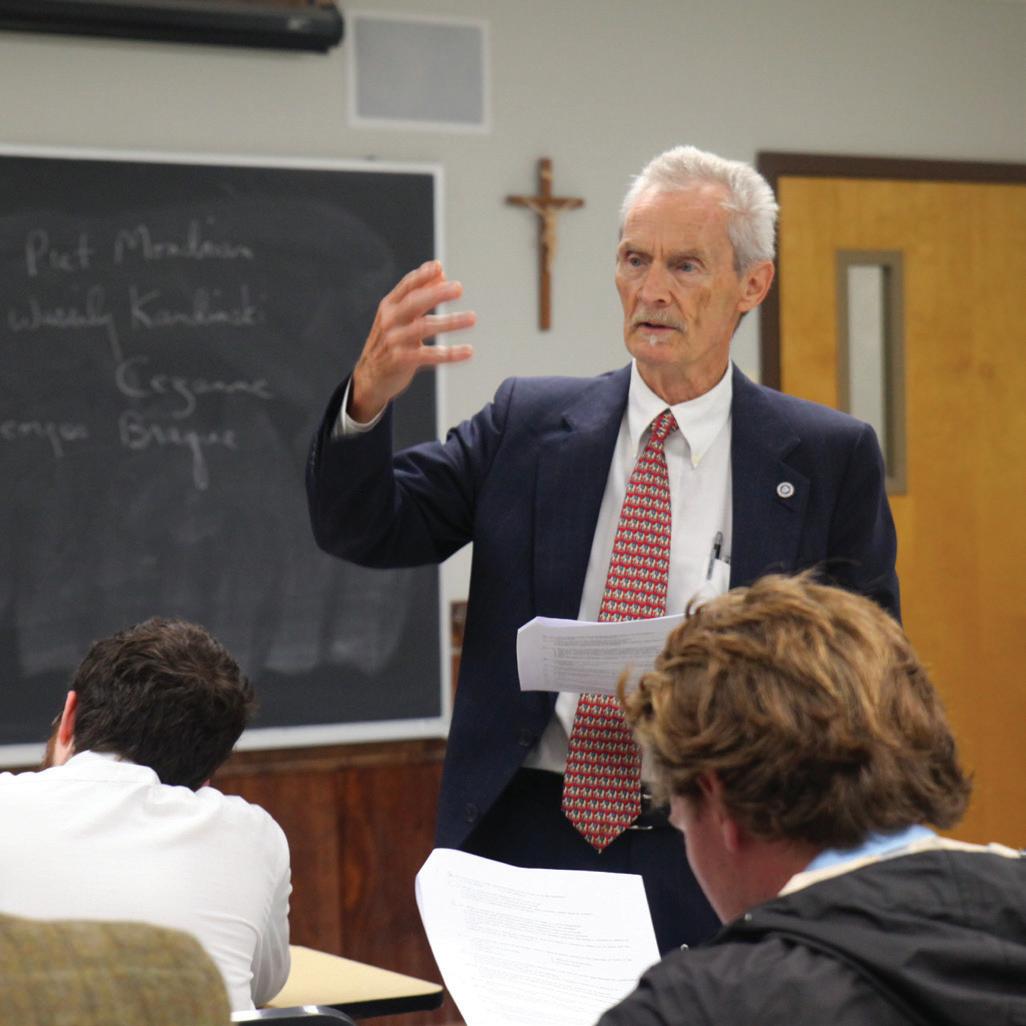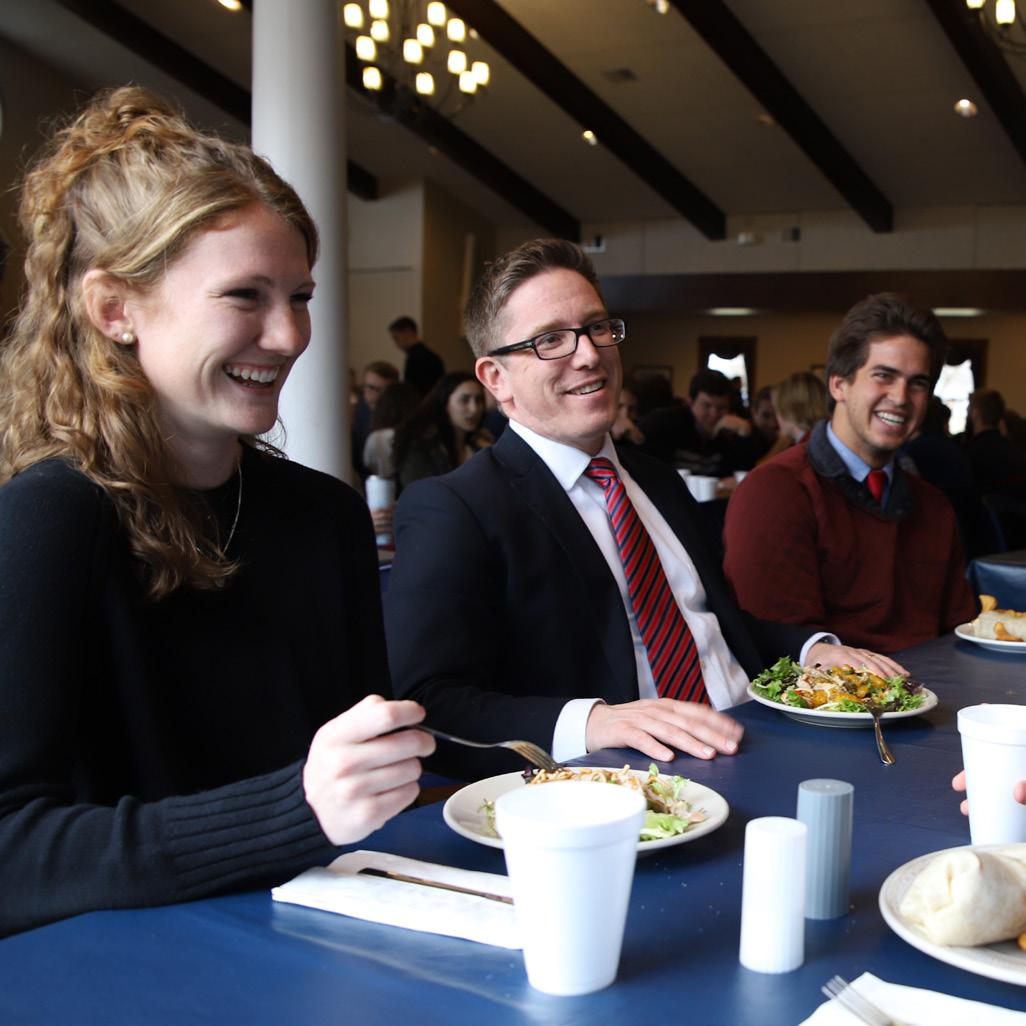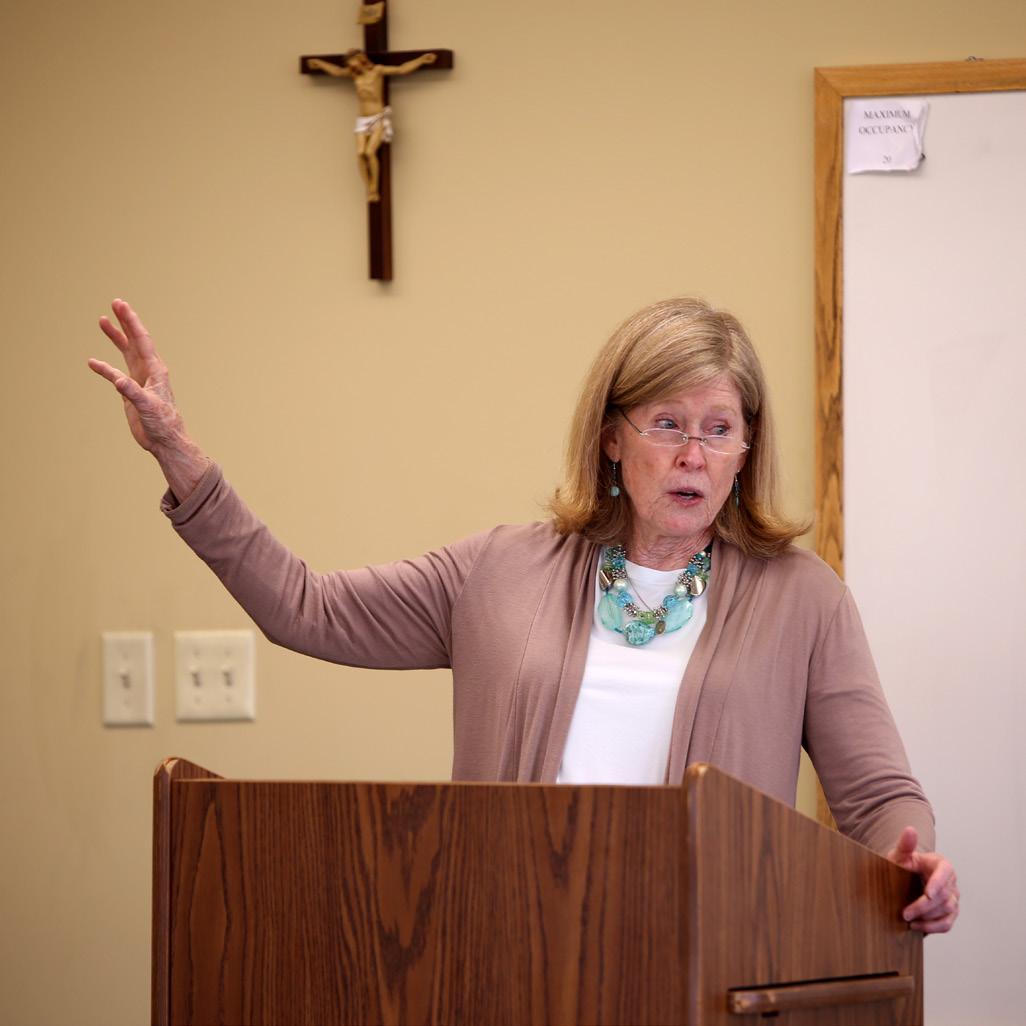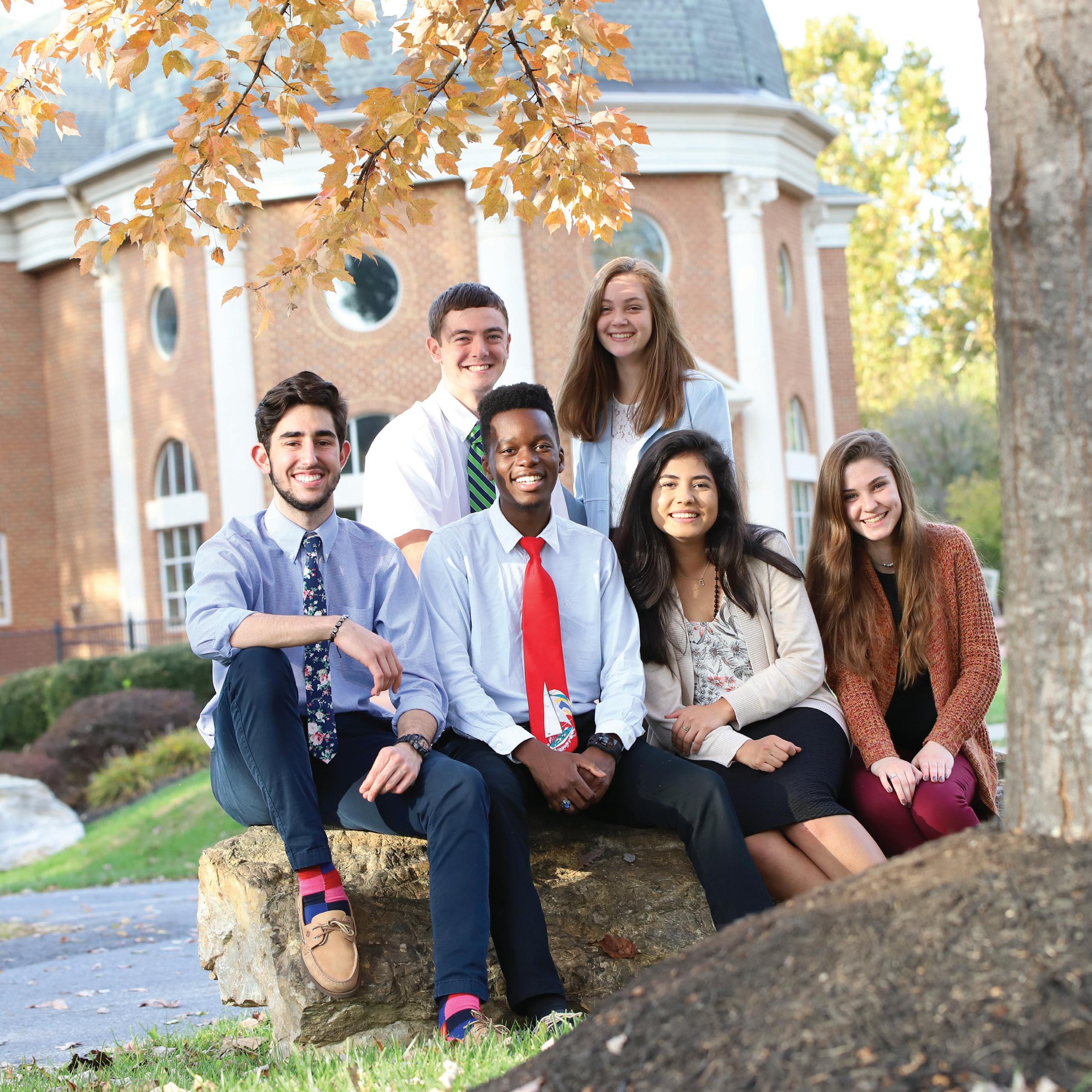
2 minute read
FACULTY & PEDAGOGY
if the curriculum of the college is aimed at knowledge of God, man, and nature in and through a liberal education, and at serving God through the restoration of all things in Christ, the rest of the college must be compatible with this goal. Not only what teachers teach but also how they teach and act should manifest this goal.


If each Christendom teacher is to further this goal, he must be a committed Catholic, faithful to the Magisterium, and loyal to the Pope as the Vicar of Christ on Earth. Furthermore, the faculty as mentors must have a love for the students, a love for learning, and a love of teaching. The role of the faculty as teachers is to guide and introduce the students to the great tradition of the liberal disciplines and to foster in them a “philosophical habit of mind,” in Newman’s phrase. The intellectual and social interaction of faculty and students, both within and outside the classroom, forms an essential and irreplaceable component of the Christendom educational program.
The professoriate at Christendom College consists of men and women learned in their disciplines; each faculty member has an advanced or terminal degree in his field. Nevertheless, they resist overspecialization and compartmentalization by striving to be conversant with the nature, purpose, general content, and interrelatedness of the core curriculum as a whole. Christendom faculty members do not rest content with the current fragmentation of intellectual life, but foster the development of Christian wisdom in their own lives as in those of their students.
The pedagogical methods employed vary according to the material being examined, the level of preparation of the students, and the disposition of the professor. What is being taught also affects the method of teaching. Even though the mind is naturally inquisitive, some material naturally raises more questions than others. In material that is philosophical in nature, many questions arise, so that a continuation of the Socratic method of interrogating students along with lecturing is more appropriate than simple lecturing.
In introductory classes, lecture is used primarily, though often with an element of Socratic dialogue, to engage the student personally. Occasionally, seminars also are used to develop a habitus of critical reflection and close reading. In a seminar, students, led by the professor, will discuss a classic work and take up a difficulty found in it. The seminar aims to understand the intention of the author and to discover the truth that he conveys. In advanced classes, there may be a greater or even exclusive use of the seminar method. In any case, classes are characterized by tripartite interaction between professor and students and among students, for which there is no adequate substitute.
Lecture, at its highest form, is the communication of truth with explanatory reasons. What is communicated is thus not mere information, but a critical knowledge derived from personally achieved wisdom, toward which the student in turn must aspire.
The seminar format, even at the introductory level, has the advantage of forcing the student to formulate and articulate ideas, problems, and solutions and to present them orally to his professor and peers.
Thus, while there is always an emphasis on student participation throughout the curriculum, the faculty try to strike a balance between lecture and seminar, utilizing the best aspects of each within the dynamics of the class, without mandating the one or the other.
Professors are urged to use, wherever practical, primary works rather than secondary treatments, so that the student may be introduced directly to the great authors of Western civilization. For example, our freshmen read Plato’s Republic, Aristotle’s Nicomachean Ethics, and Plutarch’s Lives as they read Newman’s The Idea of a University and Chesterton’s The Everlasting Man. Our students are introduced to the Summa Theologiae of St. Thomas Aquinas as well as to complete texts by Aeschylus, Sophocles, Shakespeare, and others. By these, the students are exposed to varieties of literary genres, styles, and modes of thought, as well as to the great questions about human life and existence that have driven intellectual discourse in the West for over two millennia. E









